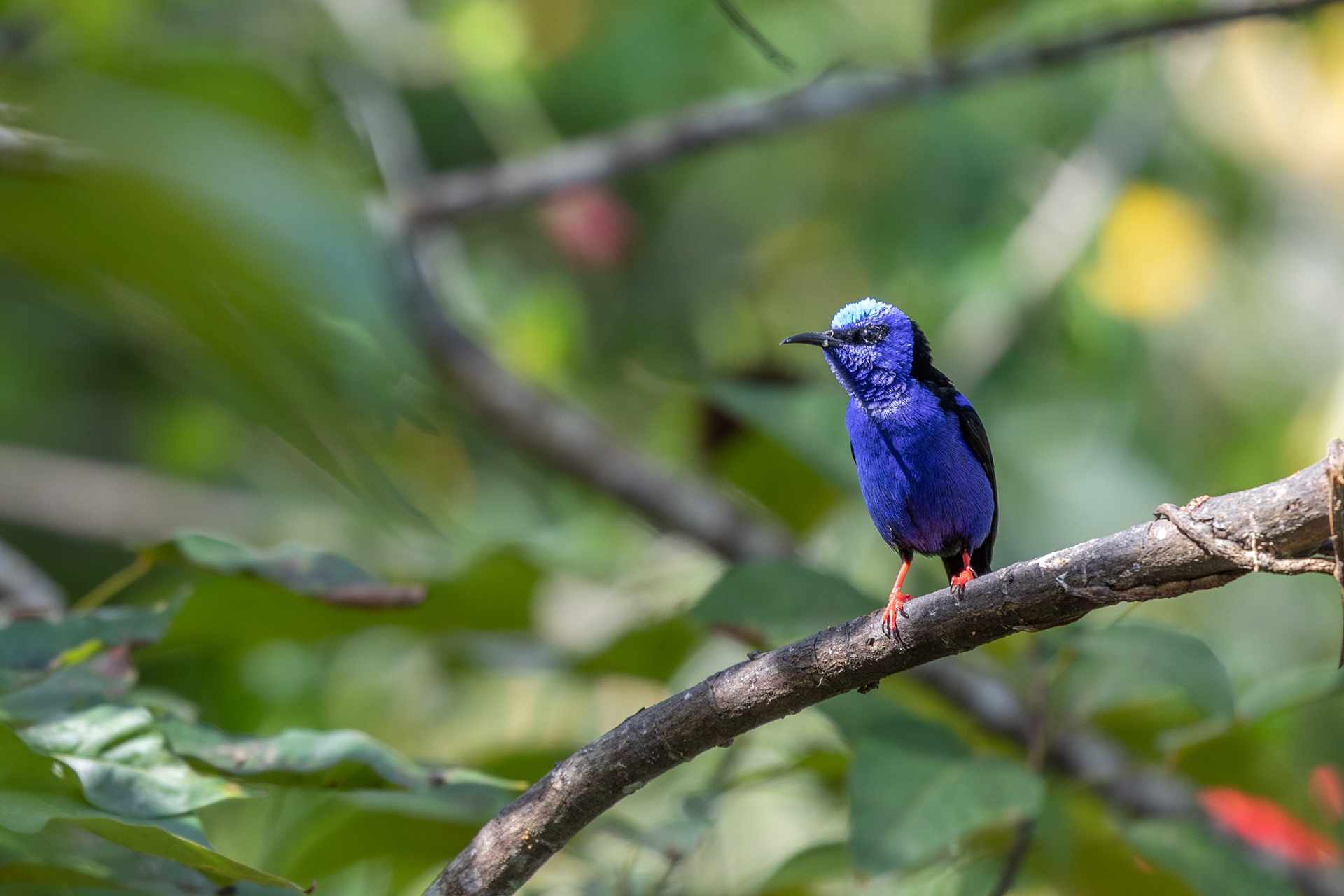Global Conservation
Conservation Can't Stop at the Border
Massachusetts Audubon Society’s mission is protecting the nature of Massachusetts for people and wildlife, but our reach extends far beyond state lines. Our global efforts began in the late 1960s, when it became obvious that the clearing of forests and degradation of oceans affects us all, regardless of how well we’re protecting our own backyard.
In order to effectively protect "our" birds, we must involve ourselves in a broader approach to conservation.
Over 70 percent of “Massachusetts birds” spend much of the year outside of the Commonwealth.
Mass Audubon & Belize
Belize is one of the most biologically diverse nations in the world. Over 90 percent of the country is still forested. There are 20 national parks and forest reserves, nine marine reserves, a dozen natural monuments and archaeological reserves, as well as a handful of extensive private protected areas.
Mass Audubon's first involvement in 1984 was to provide funding for the Belize Audubon Society to encourage the creation of a first-class park system, more actively manage the existing parks, develop conservation education programs, and step-up advocacy related to emerging environmental concerns.
Our Work in Belize
Programme for Belize (PfB)
Founded by Mass Audubon in 1988, Programme for Belize is an independent Belizean nonprofit organization with a mission to preserve and protect 262,000 acres of tropical forest in northern Belize called the Rio Bravo Conservation and Management Area (RBCMA). This vitally important area represents approximately 4 percent of Belize’s total land area. In terms of natural vegetation communities, the RBCMA is the most diverse protected area in Belize. It also contains one of the largest Mayan ruins in Belize.
PfB operates 2 facilities for visitors and researchers—La Milpa and Hill Bank Lodges. PfB is striving for financial self-sufficiency for this protected area over time through earned revenue from ecotourism and sustainable forestry.
Toledo Institute for Development and Environment (TIDE)
Mass Audubon partner TIDE protects the 160-square mile Port Honduras Marine Reserve and manages 60,000 acres of wildlife habitat including the Paynes Creek National Park for the government of Belize and protected lands it owns in southern Belize. The reserve is recognized for high biodiversity, with a robust belt of unaltered mangroves and sandy coasts that provide a critical link between terrestrial and marine environments.
Approximately 4,500 people live in adjacent communities, with additional fishing pressure stemming from poachers. The reserve encompasses estuarine near-shore communities and extends to protect fringing reefs and associated habitat that is unique to the country.
Certificate Program in Bird Ecology
Adapted from Mass Audubon's successful Birder’s Certificate Program and International Intern Program, the Certificate Program in Bird Ecology educates Latin American naturalist guides and teachers about the fundamentals of ornithology, leadership skills (especially for leading birders from North America), and bird conservation.
Each student receives an extensive program syllabus with detailed outlines for each of the program modules. This syllabus is intended to serve as a resource and reference for the students’ future development.
Support Conservation in Belize
Through our Belize Conservation Fund, Mass Audubon provides important financial support for conservation work in Belize. Our commitment is driven by our resolve to preserve habitat for Massachusetts birds that migrate through or spend the winter in Mexico, Central America, and the Caribbean Basin.
Interesting Facts about Belize
Location: Central America, bordering the Caribbean Sea between Guatemala and Mexico
Population: 315,000
Size: 8,867 square miles (slightly smaller than Massachusetts)
Birds: 65 percent of Massachusetts bird species winter in Central America, many in Belize



